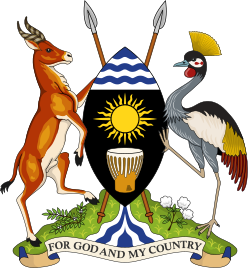Background
The Ugandan Parliament voted to conduct the referendum on 4 May 2005. Enthusiasm for the poll was muted, however, as both the government and opposition supported a return to a multiparty system. Some political groupings, including the Forum for Democratic Change, boycotted the poll, claiming that it would legitimise 19 years of rule by an effective one-party state. President Museveni castigated the boycotters for "not contributing to the development of Uganda". [1] Other observers suggested the $12.5m spent on the referendum might have been put to better use elsewhere in Uganda, one of the poorest countries in the world.
The lengthy question presented to voters on their ballots was criticised for being confusing: "Do you agree to open up the political space to allow those who wish to join different organisations/parties to do so to compete for political power?" Symbols of a tree and a house accompanied the 'yes' and 'no' boxes, respectively, on the ballot.
More than 90% of voters backed the return to multi-party politics. Some observers expressed surprise at the official figures given for voter turnout. Initial estimates indicated that less than 30% of Uganda's 8.5 million voters had turned out for the poll. The Electoral Commission, however, released an official figure of 47%. A low turnout would have been embarrassing for Museveni.
This page is based on this
Wikipedia article Text is available under the
CC BY-SA 4.0 license; additional terms may apply.
Images, videos and audio are available under their respective licenses.
